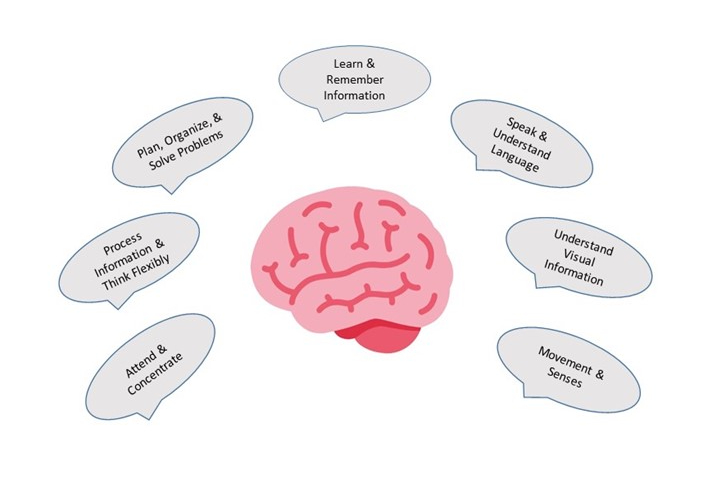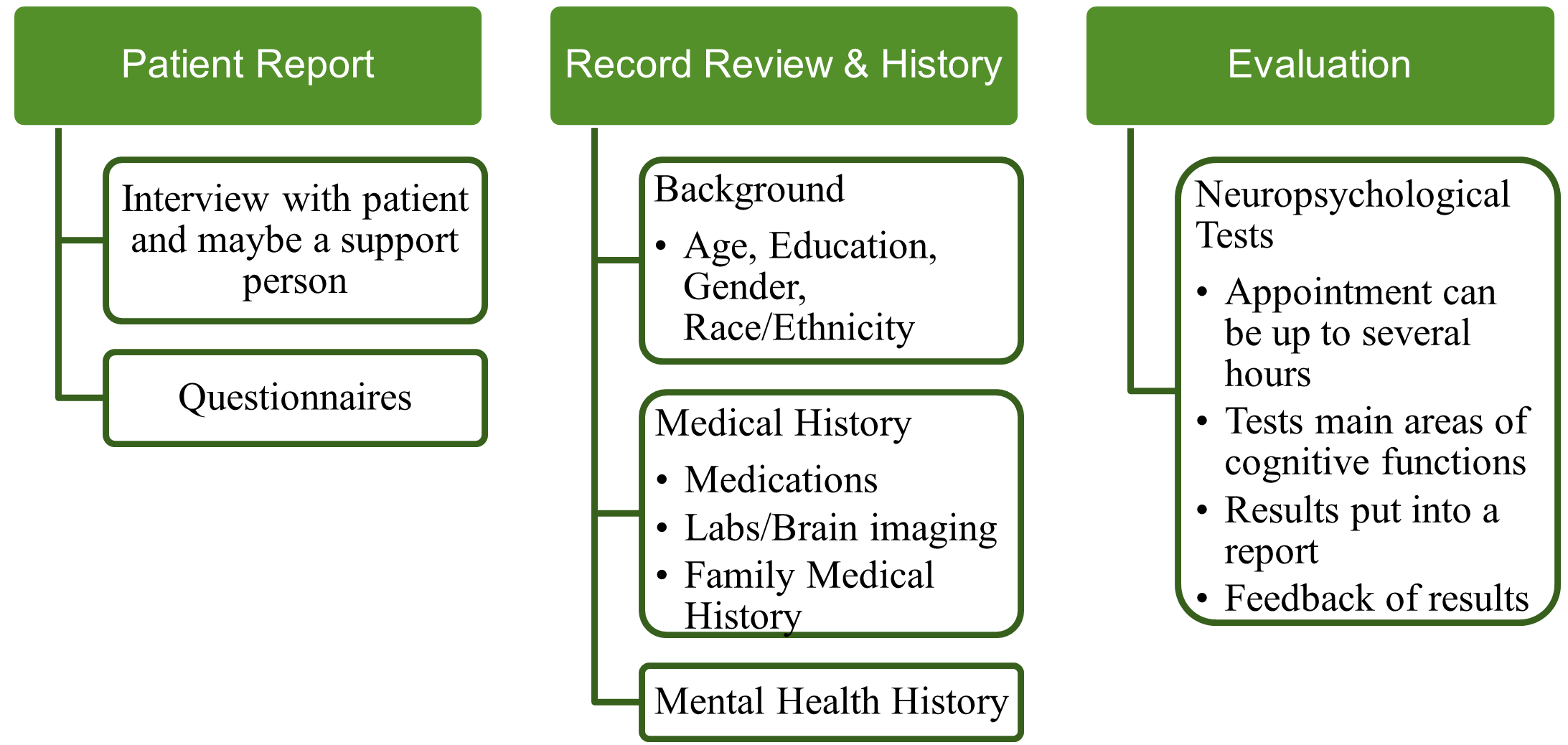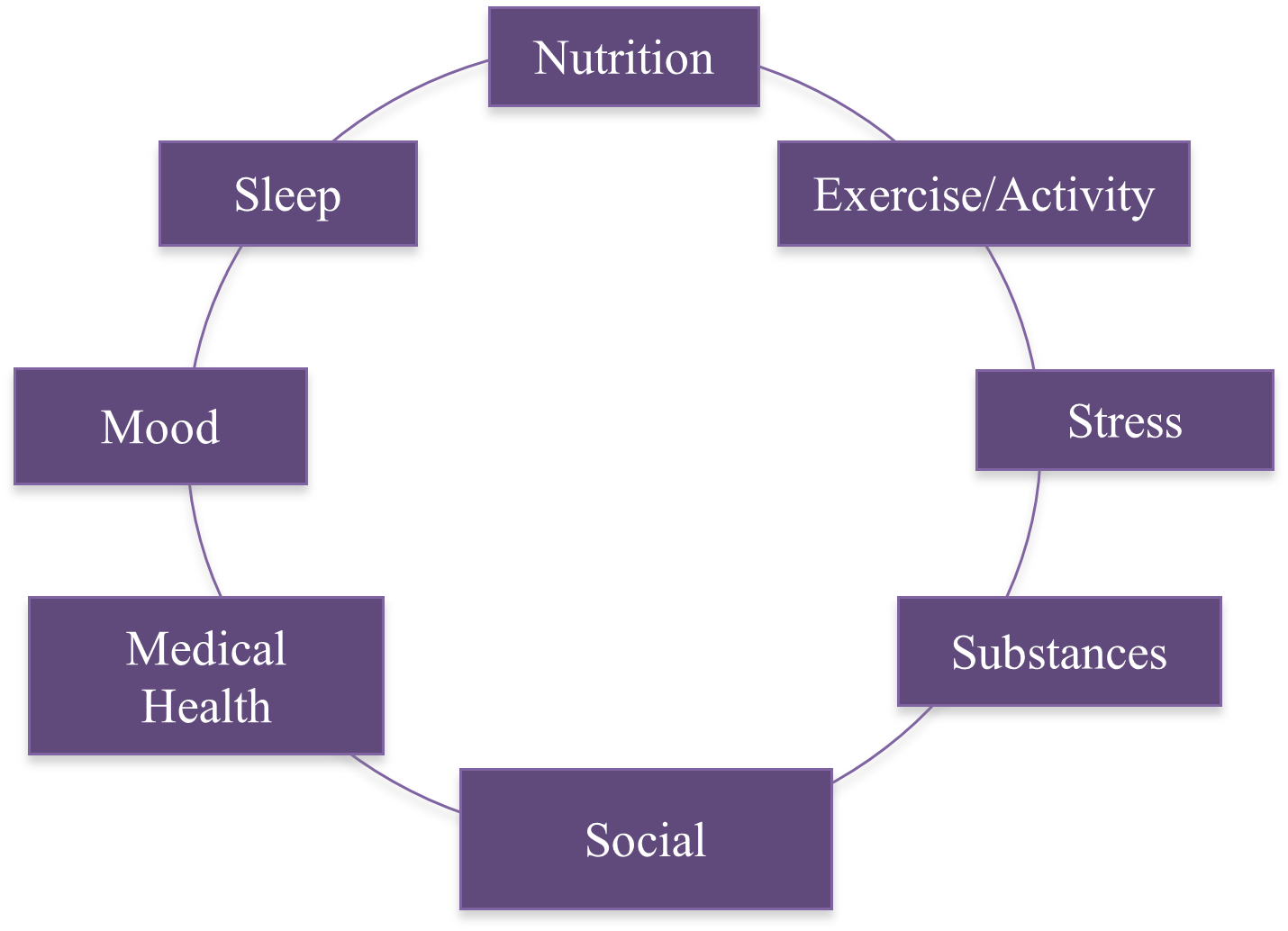Your doctor recommended a neuropsychological evaluation and you have questions about to what to expect. Look no further…we have answers!
Why Was I Referred to a Neuropsychologist?
Our brains do everything we need for us to function every day, like surfing the web, completing things on our to-do list, driving to the grocery store and remembering what to buy, planning for a trip, socializing with friends and family, feeling emotions, and even moving your hand to avoid touching a hot stove.
When someone has concerns that their brain is not working well, it may be time to see a neuropsychologist.
What is a Neuropsychologist?
A Clinical Neuropsychologist has the following:
- A doctoral degree (e.g., Ph.D., Psy.D) from university accredited by the American Psychological Association or Canadian Psychological Association (APA/CPA).
- Completed an accredited (APA/CPA) 1-year internship.
- Completed a two Postdoctoral Fellowship in Clinical Neuropsychology.
- This training focuses on how the brain works and what kinds of things can get in the way of it working well.
- Has a psychology license issued by the State where he/she/they work.
- Some have completed board certification through the American Board of Professional Psychology.
Neuropsychologists can work in many different settings including private practice, hospitals, nursing homes, schools, and rehabilitation centers. They often work closely with treatment providers in neurology, psychiatry, psychology, social work, rehabilitation medicine, and primary care.
What is Cognitive Functioning?
Cognitive functioning includes mood, behavior, and thinking abilities. The brain is complex and has many different functions that are connected with each other.

What is a Neuropsychological Exam?
A neuropsychological exam helps to understand brain function, or a person’s behavior and thinking abilities. The exam can be a one-time evaluation or it can be repeated to track changes over several years.
Your appointment has three parts:
- An interview with you and possibly a another person who knows you well (e.g., a family member, a close friend).
- Doing tasks and activities that look at your cognitive functions. These are mostly paper and pencil tasks and some may be on the computer.
- The results and feedback to you and your doctor(s).
Your neuropsychologist looks at your medical history and may talk to your doctor(s) or other people who help with your care or know you well, if you give permission.
The picture below shows the different types of information the neuropsychologist thinks about when understanding your concerns.

The neuropsychological evaluation is like putting puzzle pieces together. The neuropsychologist puts the puzzle together to see what pieces fit or do not fit with different conditions that affect how the brain works. Your scores show how you are doing compared to people your age and who are from a similar background. If you have had a neuropsychological evaluation before, your scores may be compared to see if there have been any changes over time.
There are many things that can impact your brain. Some can be medical and others can be emotional and/or environmental Your neuropsychologist will help you figure out your strengths and weaknesses and how you can do better based on your test results.

How do I Find a Neuropsychologist?
Click here (https://theaacn.org/directory/) to find a list of Board-Certified Clinical Neuropsychologists in your area.
